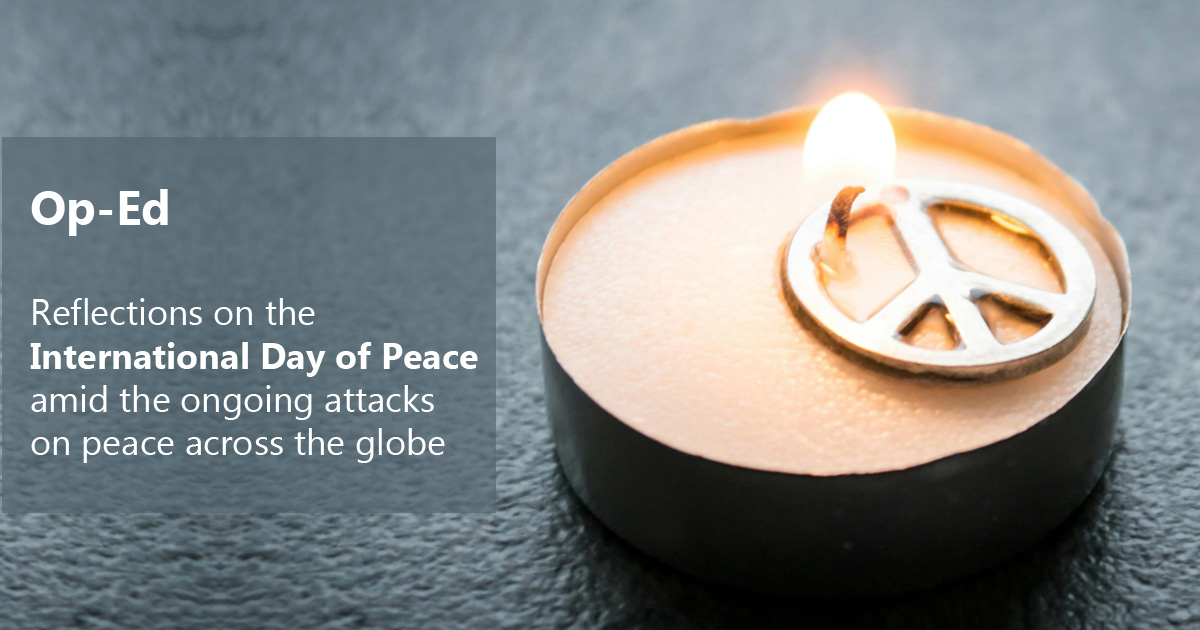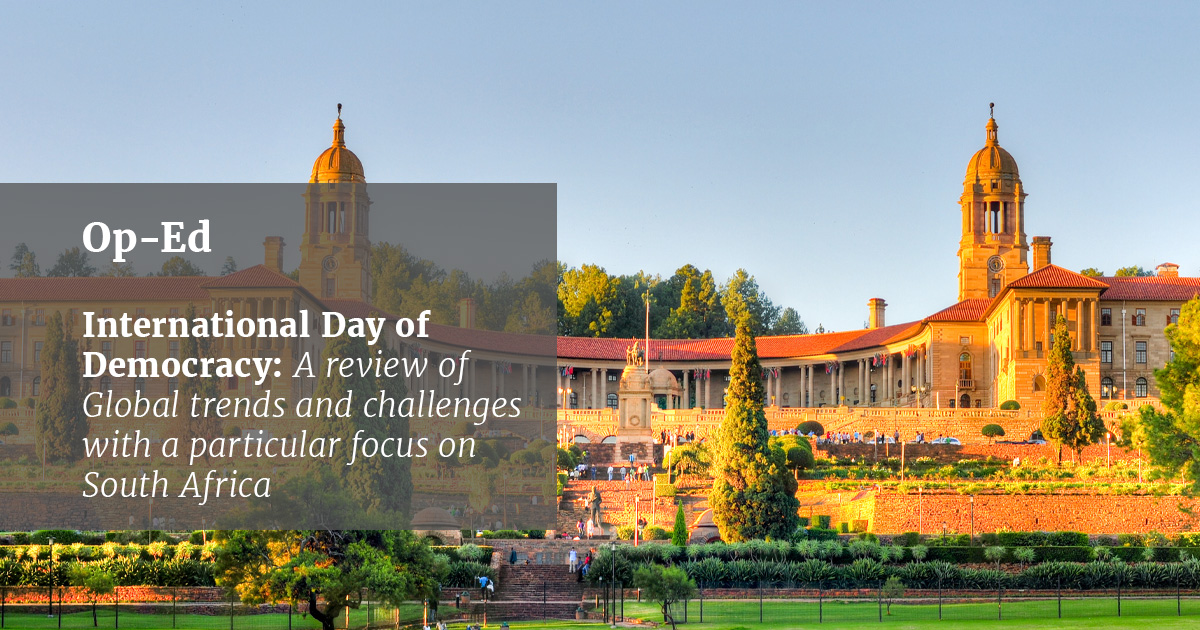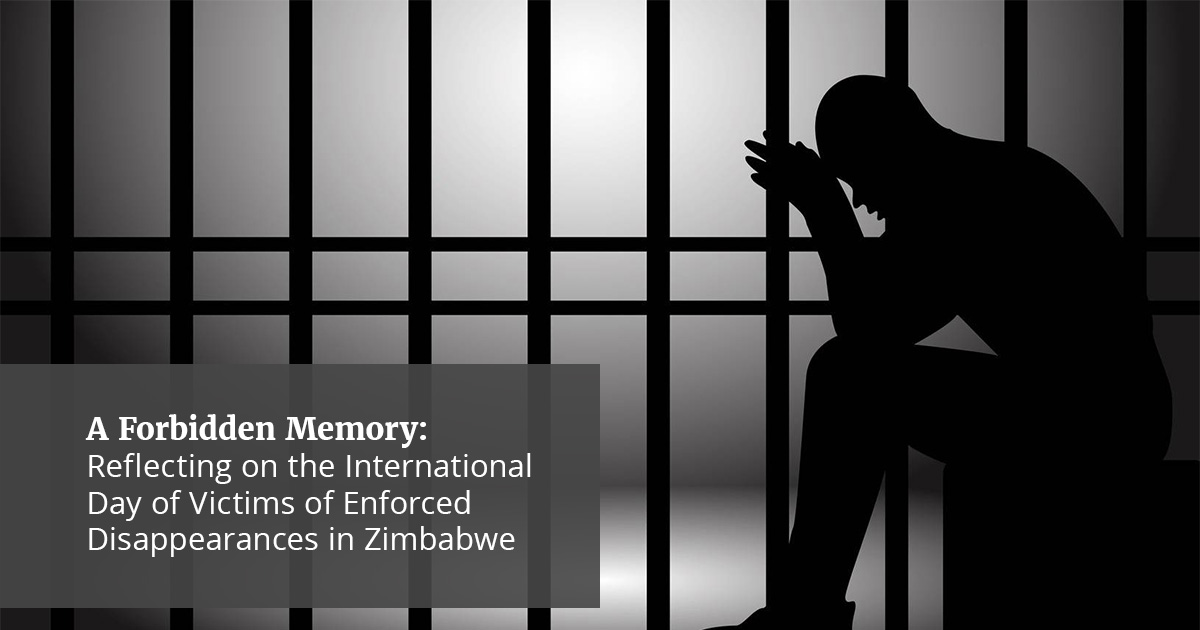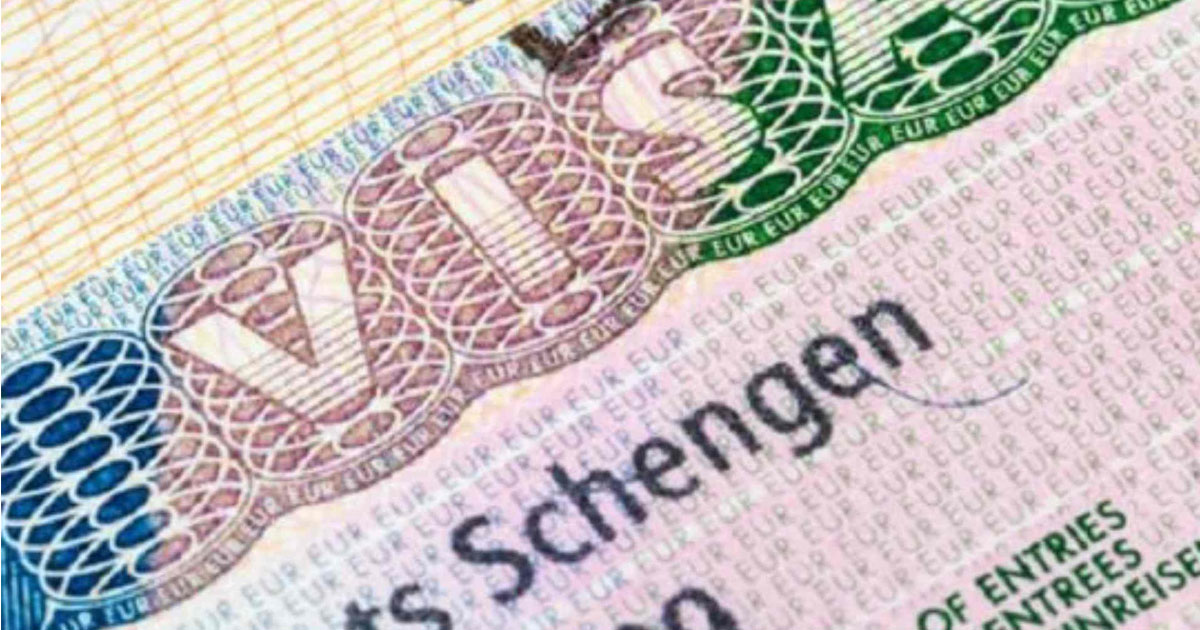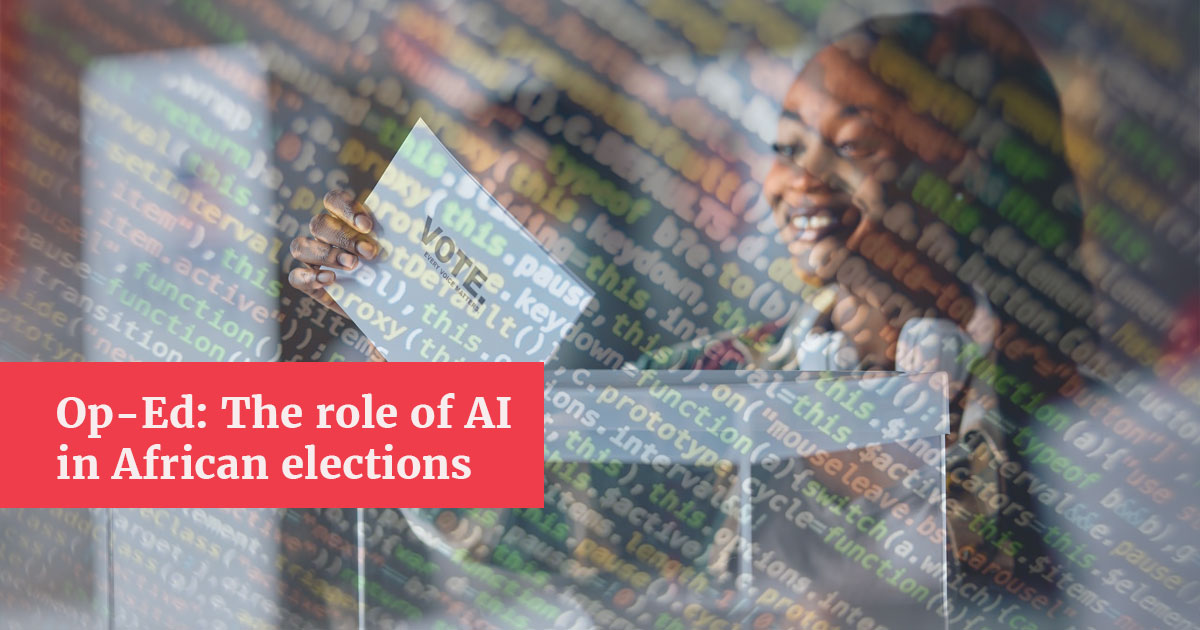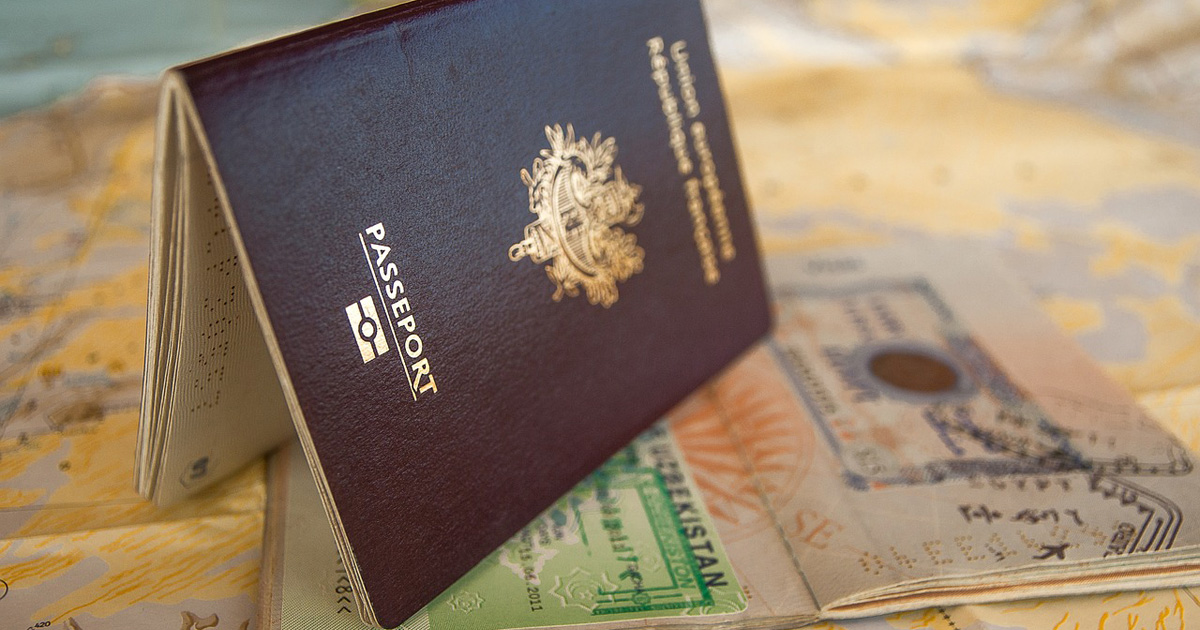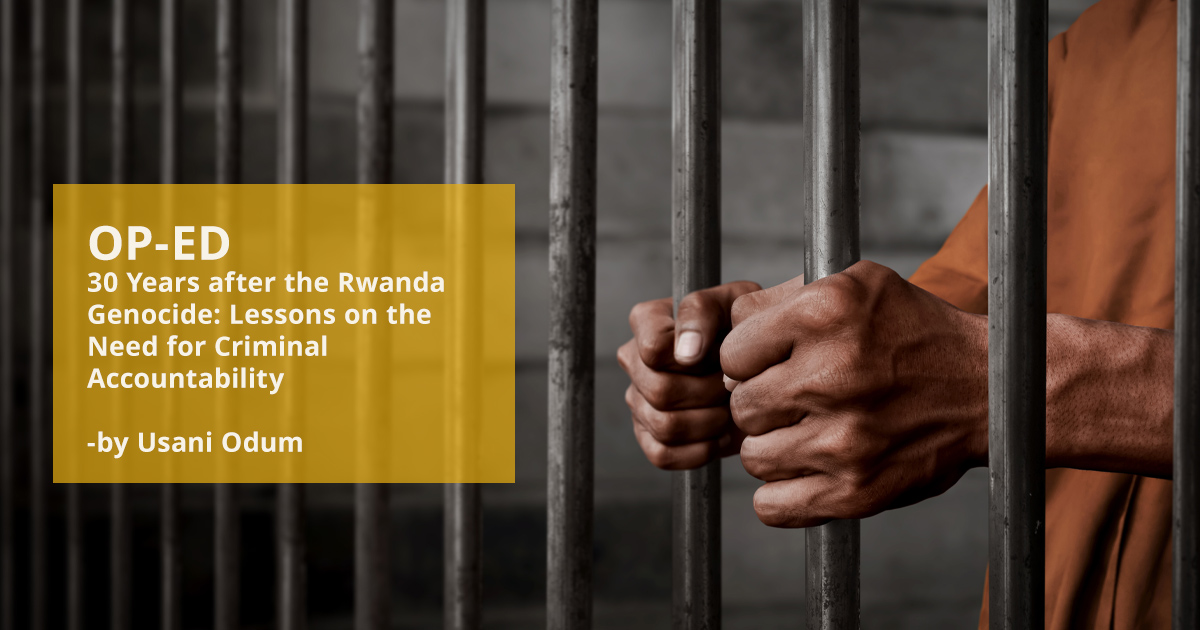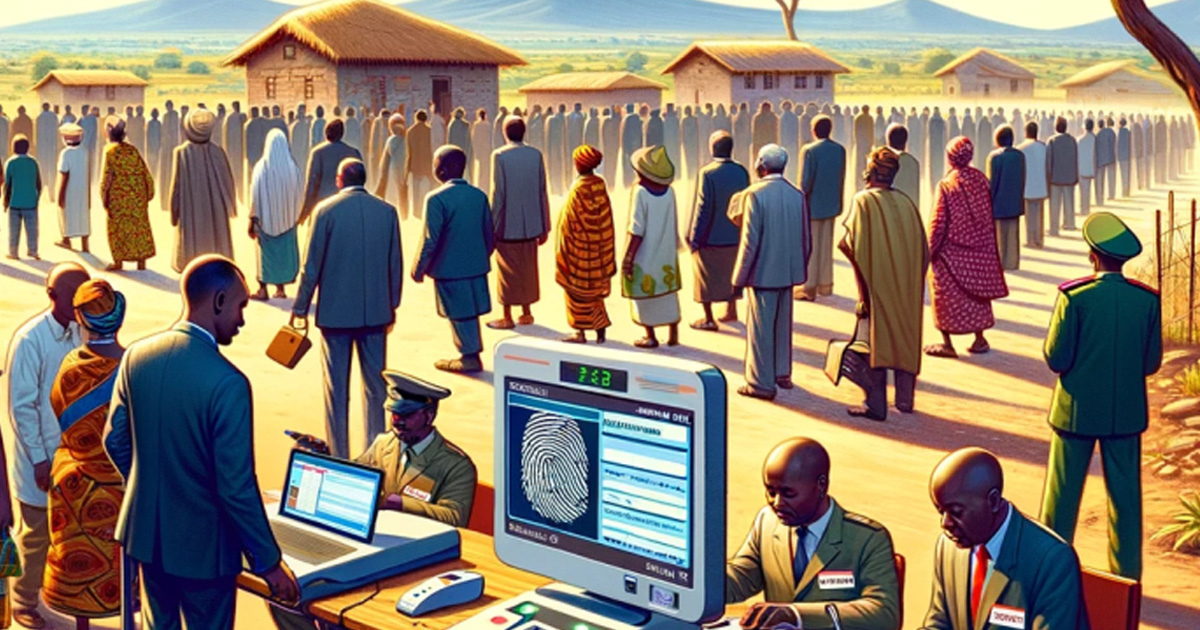- Details
By Tendai Mbanje
Introduction
Every year on 21 September, the United Nations (UN) invites the world to mark the International Day of Peace. This day was established in 1981 by the United Nations General Assembly.[1] In 2001, the General Assembly unanimously voted to designate this day as a day of non-violence and cease-fire.[2] This year’s focus is on “cultivating a culture of peace”.[3] According to the UN Secretary-General António Guterres, ‘‘cultivating a culture of peace means replacing division, disempowerment, and despair with justice, equality, and hope for all’’.[4] This day takes us back to 1945 when the UN was formed with the primary objective of promoting international peace, cooperation, security, and developing friendly relations among nations.[5] The establishment of the UN has achieved significant success in various areas. However, the organisation's peace objectives continue to face numerous challenges.
Peace is under attack, and geopolitical tensions are on the rise, undermining the objectives of the UN
- Details
by Tendai Mbanje
On 15 September, every year, the Inter-Parliamentary Union (IPU) and parliaments worldwide celebrate the International Day of Democracy, declared by the United Nations General Assembly in 2007. In its resolution A/RES/62/7 establishing the International Day of Democracy, the United Nations noted that ‘‘while democracies share common features, there is no single model of democracy’’ and that ‘‘democracy does not belong to any country or region’’. The International Day of Democracy is meant both to celebrate democracy and to serve as a reminder that the need to promote and protect democracy is as urgent now as ever. Interestingly, the choice of 15 September for the International Day of Democracy corresponds to the adoption in September 1997 by the IPU of a Universal Declaration on Democracy. This Declaration affirms the principles of democracy, the elements and exercise of democratic government, and the global scope of democracy.
- Details
By Lydia Chibwe and Bianca Knight
The International Day of the Victims of Enforced Disappearances is annually celebrated on the 30th of August and acts as a reminder of the thousands of lives lost as a result of state-sponsored abductions. On this day, the Centre for Human Rights, University of Pretoria reflects on a few events as they occurred in Zimbabwe, where political violence, persecution and unsolved disappearances have plagued the country for years.
- Details
The government of Botswana should take steps to address gaps in the legal framework such as fixing of the election date, finalisation of the constitution review process and state funding of political parties which may cause political instability in the future if not resolved.
By Tendai Mbanje
Introduction
This year, many major elections are happening across the world. In Africa, about 19 elections are expected to take place throughout the year. Many democracies are being tested. The Republic of Botswana is one democracy that must pass this test. This paper is an extract from my participation as an Election Analyst and the Deputy Chief Observer of the African Centre for Governance (ACG) Pre-Election Assessment Mission to Botswana (ACG PAM), which was held from the 18th to the 20th of July 2024. Below are key issues in relation to the political context, legal framework, the Independent Electoral Commission (IEC), voter registration, political parties, party and campaign finances, role of media, and civil society that African citizens should know as they anticipate paying close attention to Botswana’s 2024 elections, which are expected to take place in October this year.
- Details
In an era of global interconnectedness, movement of persons remains a vital driving for improved economic growth. However, in recent years, African visa applicants face disproportionately high rejection rates when applying for Schengen visas compared to other regions. In 2022, Africa nationals topped the list of most rejections with one in three of all processed applications being turned down. This was 12.5% higher than the global average. The rejection rates for Schengen visas are generally 10% higher than the global average and ten times higher than for United states citizens. This article highlights the deep-seated biases in the Schengen visa process and advocates for necessary reforms such an equitable and accessible appeal system which states legitimate reasons for visa denials in order not exacerbate high influx of illegal African migrants risking their lives across the Central Mediterranean- the most deadliest migration routes in the world- to enter Europe. ensure a fairer and more equitable system.
by Sara Hafidh, Eden Getenet, and Dorcas Ameonu
- Details
The emergence of Artificial Intelligence (AI) technology in Africa has revolutionised the electoral processes. There are fears that if not properly regulated, the use of AI may cause irreparable injuries to African elections. These fears have prompted discussions on how AI could be effectively regulated and its potential impact on African elections.
by Tendai Mbanje
- Details
by Mamadou Saidou Bah & Marie Rebecca Jolicoeur
South Africa should change its policy of burdening visa applications for Africans. The country is one of the most difficult countries for Africans to travel to because its visa application is complex and applicants face numerous challenges. Nationals of only 20 African countries can travel to South Africa with no visa of which 13 are from the Southern African Development Community (SADC) countries (see table below 1), yet holders of at least 28 different European passports can freely enter the country.
- Details
by Usani Odum
This year, the African Union commemorates the 30th anniversary of one of the biggest human calamities to have occurred on the continent. From April to July 1994, an estimated one million Tutsis were slaughtered by their Hutu countrymen in Rwanda. In the wake of the genocide, Rwanda rolled out numerous transitional justice mechanisms to help piece together its broken society, including accountability measures.
- Details
by Bonolo Makgale
The year 2024 is an extraordinary year for elections in all its hazardous glory as it sets the record for the greatest number of people living in countries that are holding elections. More voters than ever in history will be heading to the polls in at least 64 countries representing a combined population of about 49% globally. Many of these votes will test the limits of democracy, while others will be exercises in rubber-stamping the results of which, for many, will prove consequential for years to come. Yet, these elections are taking place against the backdrop of a relentless global evolution of digital technology which has ushered in a new era of unprecedented challenges in the democratic and political space . In an era of data manipulation and the growing influence of artificial intelligence, democracy stands at a critical crossroads.
- Details
The Mauritius Supreme Court has declared unconstitutional a law that criminalises consensual same-sex acts between adult men. The decision boosts the trend in the Southern African Development Community (SADC) region towards decriminalisation. Now, a slight majority – nine out of 16 member states – do not prohibit gay and lesbian sexual relations.

